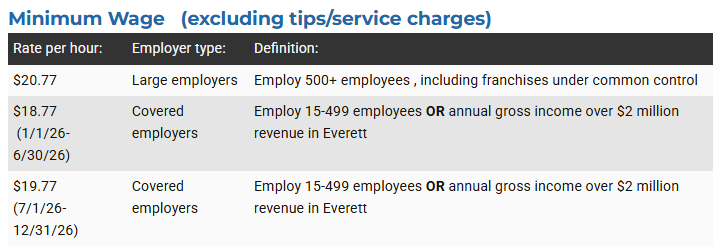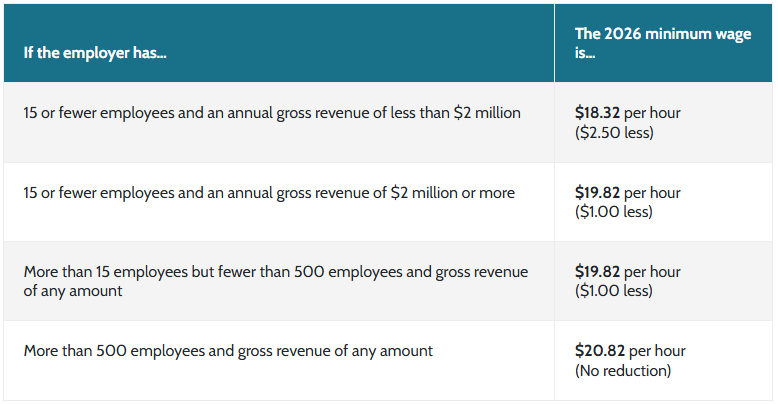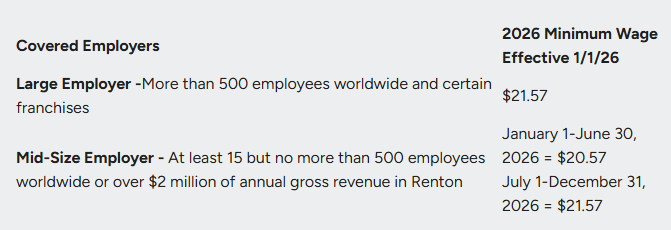Happy Holidays from Alisa Na CPAs and Advisors!
As 2026 approaches, we would like to share several timely reminders for our individual and business clients. The Internal Revenue Service is encouraging taxpayers to take proactive steps now to prepare for filing 2025 federal income tax returns next year. With year-end approaching, there are practical actions you can take to streamline the filing process and avoid last-minute surprises as the 2026 tax season begins.
The One Big Beautiful Bill Act (OBBBA) introduces multiple changes and new provisions that may affect federal taxes, credits, and deductions. Key updates include modifications related to tips, overtime pay, car loan interest, senior taxpayers, and the permanent extension of several provisions that were previously scheduled to expire on December 31, 2025.
Gather and Organize 2025 Tax Documents
To make tax time easier, establish an adequate record-keeping system, either electronic or paper, to organize all essential documents in one place. This includes year-end income forms such as:
- Forms W-2 from employers
- Forms 1099 from banks or other payers
- Forms 1099-K from third-party payment networks
- Forms 1099-NEC for non-employee compensation
- Forms 1099-MISC for miscellaneous income
- Forms 1099-INT for interest income
- Records of all digital asset transactions
Having complete documentation helps ensure an accurate return and can reduce processing delays or refund issues.
IRS Online Account
Individuals can create or access IRS Online Accounts for both individual and business purposes.
IRS Online Account for Individuals
IRS Business Tax Account
With an IRS Online Account, you can:
- View, make, and cancel payments
- Set up or change payment plans and check your balance
- View key details from your most recent tax return, such as adjusted gross income
- Request an Identity Protection PIN
- Obtain account transcripts, including wage and income records
- Sign tax forms such as powers of attorney or tax information authorization
Deadline for Final 2025 Estimated Tax Payment – January 15, 2026
Taxpayers who receive non-wage income—such as self-employment earnings, annuity payments, unemployment compensation, or income from digital assets—may need to make estimated or additional tax payments.
Wage earners can use the IRS Tax Withholding Estimator on IRS.gov to determine whether additional withholding is needed and help avoid an unexpected balance due when filing.
If you make estimated tax payments and qualify for any new deductions, you may want to review whether your final estimated payment should be adjusted. Similarly, wage earners should consider whether their current withholding remains appropriate.
Digital Assets and Taxes in 2025 – Form 1099-DA
The IRS has finalized new cryptocurrency reporting rules beginning with the 2025 tax year. If you buy, sell, or trade crypto through a custodial digital asset broker (such as Coinbase, Kraken, Binance, or a custodial wallet provider), these platforms will be required to report certain taxable transactions to the IRS using Form 1099-DA.
Form 1099-DA will include your information, the digital asset and amount sold, the sale date, and gross proceeds. The first 2025 forms are expected to be issued by March 31, 2026.
Please note: for the 2025 tax year, Form 1099-DA will not include cost basis. You will still need to track and calculate your basis before your return can be filed. Beginning in 2026, brokers will also be required to report cost basis.
Information on how to report digital asset transactions, including calculating capital gain or loss, determining basis, and reporting the income on the correct form, can also be found on the digital assets landing page.
Refund Timing and How to Avoid Delays
Most IRS refunds are issued within 21 days; however, you should not rely on receiving your 2025 federal refund by a specific date. Some returns take longer if the IRS needs to review them for errors, missing information, or possible identity theft or fraud.
Under the PATH Act, the IRS cannot release refunds for returns claiming the Earned Income Tax Credit (EITC) or the Additional Child Tax Credit (ACTC) until mid-February.
IRS Moves Toward All-Electronic Refunds
The IRS has announced it will largely stop issuing paper refund checks, with limited exceptions. Taxpayers will be required to receive refunds electronically.
Filing electronically and selecting direct deposit remains the fastest and safest way to receive your refund. Please provide your tax preparer with updated bank account information to avoid delays.
One Big Beautiful Bill Act (OBBBA):
Key Federal Tax Changes Affecting Individuals
Senior Tax Deduction
For tax years 2025 through 2028, taxpayers age 65 or older may qualify for an additional $6,000 deduction per person, or $12,000 if both spouses qualify. The deduction phases out for income over $75,000 (single) or $150,000 (married filing jointly).
No Tax on Tips
Qualified cash tips received in eligible occupations may be deductible up to $25,000 annually. The deduction phases out for income over $150,000 (single) or $300,000 (married filing jointly).
No Tax on Overtime
Qualified overtime compensation may be deductible up to $12,500 ($25,000 for married filing jointly), subject to the same income phase-out thresholds as tips. This applies to overtime required under the Fair Labor Standards Act that exceeds your regular rate of pay.
Trump Accounts (New Child Savings Accounts)
A new savings account for children, similar to a traditional IRA. Parents may begin contributing on July 4, 2026. For children born between January 1, 2025, and December 31, 2028, the government may provide a one-time $1,000 deposit, provided both the child and parent have valid Social Security numbers.
Car Loan Interest Deduction
Through 2028, you may deduct up to $10,000 of interest on loans for qualifying passenger vehicles purchased after December 31, 2024. The deduction phases out for income over $100,000 (single) or $200,000 (married filing jointly). The vehicle must be new, manufactured primarily for public road use, and final assembly must occur in the United States.
State and Local Tax (SALT) Deduction
The SALT deduction cap increases to $40,000 for 2025 and $40,400 for 2026, with 1% annual increases through 2029, then reverting to $10,000 in 2030. The enhanced deduction phases out for taxpayers with income over $500,000 ($250,000 for married filing separately).
Green Energy Credits
Many residential and vehicle clean energy credits expanded under the Inflation Reduction Act are reduced or eliminated after 2025, including the Clean Vehicle (EV) Credit for purchases after September 30, 2025.
- The Clean Vehicle Credit (EV tax credit) was terminated for purchases after September 30, 2025. Existing credits claimed before the sunset remain valid.
- Credits for residential energy efficiency upgrades, such as heat pumps, windows, and insulation, are reduced or eliminated after 2025.
- The bill blocks future extensions of green credits without separate legislation, so Congress would have to pass a new law to revive these incentives later.
Enhanced Child Tax Credit
The Child Tax Credit increases to $2,200 per qualifying child for 2025 and with inflation adjustments beginning in 2026. The refundable portion is $1,700. Income limits of than $200,000 for a single return & $400,000 if filing a joint return apply, and Under new OBBBA SSN requirements, at least one parent/taxpayer must have a work-eligible SSN (not an ITIN), and the child must also have a SSN.
IRS Gift Tax Exclusion
The annual IRS gift tax exclusion is $19,000 per recipient for both 2025 and 2026. Gifts above this amount must be reported on a federal gift tax return.
Federal Lifetime Gift and Estate Tax
For 2025, the federal lifetime gift, estate, and GST tax exemption amount is $13.99 million per individual. While the 2025 lifetime estate and gift tax exemption remains $13.99 million per person, the One Big Beautiful Bill Act provides relief starting January 1, 2026. The exemption will permanently increase to $15 million per person (indexed for inflation), eliminating the previously scheduled reduction to approximately $7 million. This change provides much greater certainty for long-term estate planning strategies.
Educator Credit
You can deduct up to $300 of unreimbursed classroom expenses if you are an eligible educator. If both spouses are educators and file jointly, they can deduct up to $600 (with each capped at $300).
Estimated Tax Payments
The IRS underpayment and late-payment interest rate for individual taxpayers will be 7% in 2025. Please consider making estimated payments by April 15, even if you request an extension to file your tax return.
Rules to avoid an estimated tax penalty have not changed:
- Pay 100% of prior year tax (or 110% if AGI is over $150,000)
- For the four quarters of 2025, the estimated tax penalty rate is 7%
- If you qualify for new OBBBA deductions, we recommend reviewing whether a 4th quarter federal estimate is still needed
Social Security Updates
Social Security benefits will increase by 2.8% beginning in 2026. Social Security wage base will increase to $184,500 in 2026. For individuals under full retirement age (67), the earned income limit increases to $24,480 in 2026.
IRS Business Mileage Rate
The IRS standard mileage rates are 70 cents per mile for business purposes in 2025.
Standard mileage rates | Internal Revenue Service
Retirement, HSA, and RMD Planning
Maximum Retirement Contributions for 2025
Contribute the maximum allowable amount to retirement accounts such as 401(k)s, IRAs, or SEP IRAs. These contributions can reduce your taxable income and enhance your retirement savings.
- Traditional IRA or Roth IRA: $7,000 ($8,000 if age 50 or older). This limit is unchanged from 2024.
- SIMPLE IRA: $16,500 ($20,000 if age 50 or older).
- 401(k) elective deferrals: $23,500 for individuals under age 50.
- Catch-up contribution for those 50 or older: $7,500 (total $31,000).
- Some age bands (ages 60–63) may have a higher catch-up limit of $11,250 for 401(k) and $5,250 for SIMPLE under SECURE 2.0 provisions.
- SEP IRA: Contributions are limited to the lesser of 25% of compensation or $70,000.
Required Minimum Distributions (RMDs)
Required Minimum Distributions (RMDs) are mandatory, taxable withdrawals from IRAs and retirement plans that generally begin at age 73. The first RMD is due by April 1 of the year after you turn 73, with all future RMDs required by December 31 each year, potentially resulting in two taxable distributions in the first RMD year. For example, if you turned 73 in 2025, your first RMD is due by April 1, 2026, and your second RMD (for 2026) is due by December 31, 2026.
Maximum Health Savings Account (HSA) Contribution Limits for 2025
- Self-only coverage: $4,300.
- Family coverage: $8,550
- Those 55 and older can contribute an additional $1,000 as a catch-up contribution.
2026 Tax Year – Charitable Giving
Beginning in 2026, OBBBA permits non-itemizers to claim an above-the-line deduction for cash contributions to public charities, up to $1,000 for single filers and $2,000 for married filing jointly, without using Schedule A.
Also, if you plan to make charitable contributions, consider donating appreciated assets (such as stocks or real estate) to potentially enhance your tax benefits while avoiding capital gains on the donated property. Be sure to keep thorough documentation for all contributions.
Washington State Tax Updates
Washington Long-Term Capital Gains Tax
Beginning in tax year 2025, Washington’s long-term capital gains tax applies at:
- 7% on the first $1 million of taxable Washington capital gains
- 9.9% (7% + 2.9%) on gains exceeding $1 million
Washington Capital Gains Standard Deduction
The Washington capital gains standard deduction for 2025 is $278,000, up from $270,000 in 2024. This amount is adjusted annually for inflation.
Please contact us in February if you would like to schedule a consultation regarding Washington capital gains planning. For additional details, visit the Washington Department of Revenue website.
These guidelines are intended to support year-end tax planning. Because every financial situation is unique, we recommend scheduling a meeting so we can review your specific circumstances and identify the most effective strategies.
Thank you for trusting us with your financial needs. We look forward to supporting your financial goals in the coming year. Please do not hesitate to reach out with any questions.
Sincerely,
Alisa Na CPAs & Advisors






